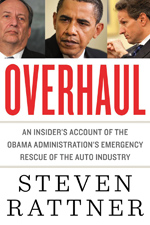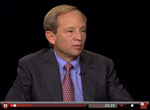Originally Appeared in The New York Times.
The Congressional Budget Office never exuded sex appeal, at least not until recently. Its bland office building, which sits unobtrusively by a freeway in southwest Washington, houses an often-overlooked assemblage of wonkish economists whose idea of professional happiness is producing 10-year fiscal forecasts.
Nevertheless, it’s an agency of indispensable importance that is now coming under attack not only from Critic-in-Chief Donald Trump but from a broad array of Republican leaders, including even Speaker Paul Ryan.
If, as Oscar Wilde said, that you can judge a man — or in this case an institution — by the quality of its enemies, then the C.B.O. has chosen very well.
The current Republican beef with the C.B.O. is that it has repeatedly (and undoubtedly correctly) concluded that conservative proposals to gut the Affordable Care Act would cost tens of millions of Americans their health insurance.
Amazingly, in July, the White House even put out a 45 second video contending that “the Congressional Budget Office’s math does not add up.” A few days later, two senior Trump aides labeled the C.B.O.’s health care scoring “fake news” in a Washington Post Op-Ed. In 40 years of observing the budgeting process, I can’t recall anything remotely like this criticism of the C.B.O.
Developing long-term projections — particularly for complex policies like health care — is exceptionally difficult. And by no means do C.B.O. analyses invariably prove correct.
But passing sweeping legislation without input from the budget office would be like planning a picnic without checking the weather forecast. Meteorologists are not always right either but imagine what life (and businesses such as agriculture) would be like without them.
Health insurance changes may now be on hold for the moment, but other critical policy issues — notably, tax reform and next year’s spending — are moving to the front burner.
The C.B.O. was established in 1974 to do precisely what Republicans now don’t want it to do: serve as an independent counterpoint to the Office of Management and Budget. As a creature of the executive branch, the O.M.B. is often, and appropriately, criticized for lacking that nonpartisan viewpoint.
Keith Hall, the current director of the C.B.O. was selected two years ago by the Republican leadership on Capitol Hill — some of the same individuals who are now attacking the agency’s credibility.
“At some point, you’ve got to ask yourself, has the day of the C.B.O. come and gone?” O.M.B. director Mick Mulvaney — himself a former House member — asked in May.
More recently, a group of conservative House Republicans proposed slashing the C.B.O.’s budget and cutting its staff of 235 by 89 employees.
In a burst of bipartisanship unusual in today’s Washington, all eight of the previous directors sent a letter in late July to congressional leaders expressing their “strong objection to recent attacks on the integrity and professionalism of the agency.”
More support has come from the Committee for a Responsible Federal Budget, with which I’m affiliated. “You don’t beat up the referee just because you don’t like the score,” President Maya MacGuineas said in a statement.
Their pushback rests on strong footing: The C.B.O.’s analysis of the impact of Obamacare were closer to the mark than those of most other forecasters.
For example, back in 2010, the agency projected that the number of people without insurance would drop to 30 million in 2016. The actual figure in that year, according to the Centers for Disease Control and Prevention, was 28.6 million (a drop of 20 million from 2010).
Yes, the C.B.O. initially overestimated marketplace enrollment and underestimated Medicaid enrollment. But it was closer on the top line estimate than forecasts from many other organizations, according to a 2015 study by the Commonwealth Fund.
Healthcare is not by any means the only policy area where the Trump White House has tried to fudge the numbers to a degree not seen in many decades.
The administration’s first full budget proposal, issued on May 23, included a number of absurd assumptions, particularly about the pace of economic growth and the impact of the president’s still-vague tax plans.
Happily, the C.B.O. weighed in and concluded that instead of a small surplus in 2027, the O.M.B. proposal would instead result in a $720 billion deficit.
In particular, the budget office focused on the administration’s wildly optimistic assumption that the economy would grow at a 3 percent annual rate over the next decade. Instead, the agency agreed with most private forecasters that 1.9 percent was a more realistic assumption.
That conclusion will put much needed pressure on the White House to propose a more responsible tax package, and on Congress to act judiciously.
As we face an era of widening budget deficits and the increased fiscal burden of an aging society, having the independent voice of the Congressional Budget Office is more important than ever.
The only way to deal with bullies like Mr. Trump and his lackeys is to stand up to them. Capitol Hill legislators — who have mostly been curiously silent — need to come to the defense of an agency essential to the policy process.


